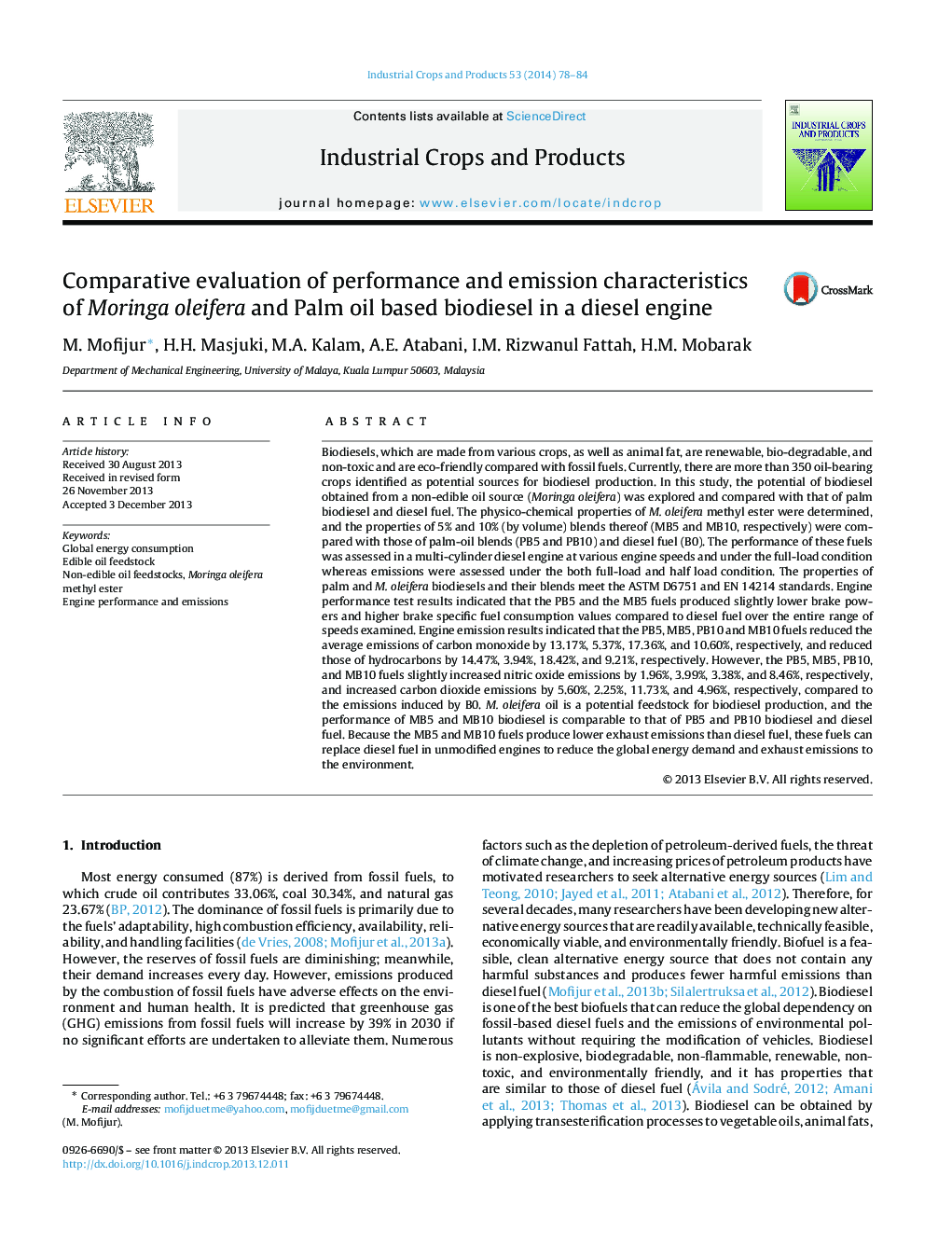| کد مقاله | کد نشریه | سال انتشار | مقاله انگلیسی | نسخه تمام متن |
|---|---|---|---|---|
| 4513537 | 1624856 | 2014 | 7 صفحه PDF | دانلود رایگان |
• Crude Moringa oleifera oil as a potential feedstock for biodiesel production.
• Production of biodiesel from Moringa oleifera oil.
• Characterization of Moringa oleifera biodiesel.
• Evaluation of Moringa oleifera biodiesel blend in a diesel engine.
Biodiesels, which are made from various crops, as well as animal fat, are renewable, bio-degradable, and non-toxic and are eco-friendly compared with fossil fuels. Currently, there are more than 350 oil-bearing crops identified as potential sources for biodiesel production. In this study, the potential of biodiesel obtained from a non-edible oil source (Moringa oleifera) was explored and compared with that of palm biodiesel and diesel fuel. The physico-chemical properties of M. oleifera methyl ester were determined, and the properties of 5% and 10% (by volume) blends thereof (MB5 and MB10, respectively) were compared with those of palm-oil blends (PB5 and PB10) and diesel fuel (B0). The performance of these fuels was assessed in a multi-cylinder diesel engine at various engine speeds and under the full-load condition whereas emissions were assessed under the both full-load and half load condition. The properties of palm and M. oleifera biodiesels and their blends meet the ASTM D6751 and EN 14214 standards. Engine performance test results indicated that the PB5 and the MB5 fuels produced slightly lower brake powers and higher brake specific fuel consumption values compared to diesel fuel over the entire range of speeds examined. Engine emission results indicated that the PB5, MB5, PB10 and MB10 fuels reduced the average emissions of carbon monoxide by 13.17%, 5.37%, 17.36%, and 10.60%, respectively, and reduced those of hydrocarbons by 14.47%, 3.94%, 18.42%, and 9.21%, respectively. However, the PB5, MB5, PB10, and MB10 fuels slightly increased nitric oxide emissions by 1.96%, 3.99%, 3.38%, and 8.46%, respectively, and increased carbon dioxide emissions by 5.60%, 2.25%, 11.73%, and 4.96%, respectively, compared to the emissions induced by B0. M. oleifera oil is a potential feedstock for biodiesel production, and the performance of MB5 and MB10 biodiesel is comparable to that of PB5 and PB10 biodiesel and diesel fuel. Because the MB5 and MB10 fuels produce lower exhaust emissions than diesel fuel, these fuels can replace diesel fuel in unmodified engines to reduce the global energy demand and exhaust emissions to the environment.
Journal: Industrial Crops and Products - Volume 53, February 2014, Pages 78–84
